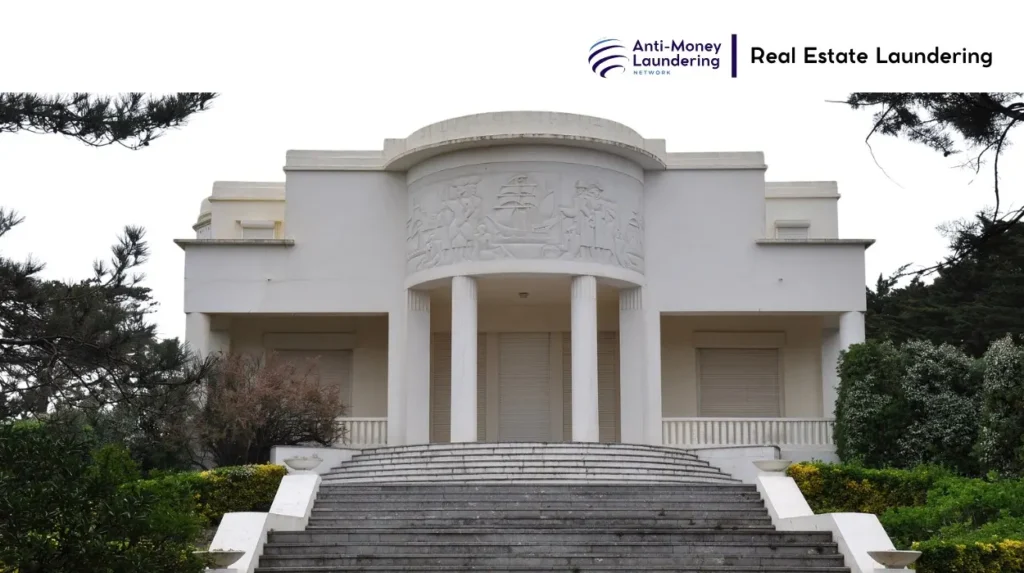Villa Souzanna is a luxury Art Deco villa located in Anglet, in the Basque Country of southwestern France, near the upscale resort town of Biarritz on the Atlantic Ocean coast. Originally built in the 1920s by Anglo-Belgian financier Alfred Loewenstein, the villa is set on a sprawling 5,000-square-meter estate with a private park, outdoor pool, and music pavilion. Its distinctive Greek temple-like architecture features classical bas-reliefs by French sculptors Jan and Joël Martel.
The villa came under new ownership in December 2013 when Artur Ocheretny, a Russian businessman, purchased it for approximately €5.4 million. Ocheretny is the husband of Lyudmila Otcheretnaya (formerly Putina), the ex-wife of Russian President Vladimir Putin. The purchase took place shortly after Putin’s divorce in 2013, linking Villa Souzanna closely to Kremlin inner circles.
Following acquisition, the property underwent a major renovation starting around 2015, spearheaded by architect Luc Vaichère, who sought to preserve its historic spirit while modernizing its interiors and amenities. The villa was renamed “Rêverie” during this renovation process and continues to hold significant interest due to its elite ownership and location.
Management and Project Head
Artur Ocheretny manages the property ownership through a real estate company based in France. His business background centers on interpersonal communications, distinct from his capability to finance such an upscale property, which has increased scrutiny regarding the source of funds. Ocheretny maintains a low public profile and communicates through legal representatives regarding the villa. His connection to Lyudmila Otcheretnaya, who has familial ties to Putin, positions the villa among properties linked to politically exposed persons (PEPs).
Controversies and Scandals
Villa Souzanna became a focal point in anti-corruption scrutiny and money laundering investigations following accusations by non-governmental organizations such as Transparency International. The NGO demanded verification of the funding sources used to purchase and renovate the villa. French judicial authorities seized the property on December 6, 2023, as part of a wider crackdown on assets tied to Kremlin insiders amid the ongoing war in Ukraine.
The villa was graffitied with anti-Putin slogans at the onset of the war, underscoring its symbolic significance. Despite being officially owned by Ocheretny’s company, questions regarding the legitimacy and transparency of ownership and financing persist.
Reports from investigative bodies like the Organized Crime and Corruption Reporting Project (OCCRP) highlight that the financial records of Ocheretny do not justify the acquisition and high renovation costs, suggesting hidden wealth or illicit financing as likely sources.
Money Laundering Activities
The villa’s acquisition and renovation reflect common money laundering tactics: the use of layered ownership through corporate entities to conceal true ownership; luxury property overvaluation; the infusion of substantial renovation funds to further increase asset value; and offshore or opaque financing mechanisms.
These complex structures and transactions are typical in laundering schemes where real estate acts as a value warehouse for illicit funds, facilitating their integration into the formal economy. The French investigation aims to dissect these layers and trace the origin of funds linked to Russia’s political elite.
International Links and Benefited Countries
France, hosting Villa Souzanna on its Atlantic coast, is directly implicated in this case due to regulatory and enforcement challenges allowing opaque ownership. The financial sources are suspected to stem from Russian elite circles, linking Russia as the originating country of illicit funds. This cross-border dynamic underscores France’s role as a favored destination for foreign investments by politically exposed individuals seeking asset concealment.
The layering of ownership through corporate entities possibly connected to offshore jurisdictions further complicates tracing, highlighting the villa’s place in an international laundering network exploiting gaps between countries.
Regulatory Actions and Legal Proceedings
The villa was seized by French judicial authorities in December 2023 under suspicions of aggravated money laundering and asset concealment. The judicial action followed initial complaints filed by Transparency International, urging investigation into the sources of funds. The Paris Prosecutor’s Office confirmed the seizure amidst ongoing probes targeting Kremlin-linked oligarchs and their properties in France.
Despite Kremlin condemnation labeling the seizure illegal, French enforcement reflects a heightened sensitivity to enforcing sanctions and anti-money laundering laws, though critics argue enforcement remains uneven and hindered by political and financial opacity.
Public Impact and Market Reaction
The Villa Souzanna case has amplified public discourse around money laundering risks in the French luxury real estate market, particularly assets tied to foreign political elites. Investor trust faces erosion due to high-profile seizures and concerns over market integrity.
Market prices in the Basque Country have shown signs of caution, with increased calls for transparency and tighter regulations. The public and media scrutiny also pressures the French government to enhance AML compliance frameworks and close loopholes exploited by PEPs and oligarchs.
Currently, Villa Souzanna remains under judicial seizure and renovation. The ongoing investigations aim to clarify the financial irregularities behind its purchase and funding. Enforcement agencies continue to explore connections to other Kremlin-linked assets in France, with the villa serving as a test case for prosecutorial efforts in cross-border financial crime.
Experts suggest that while the seizure is a positive indicator of law enforcement resolve, systemic reforms in France’s real estate transparency and AML enforcement are urgently required to prevent further misuse. The villa’s case symbolizes the complexities facing jurisdictions balancing luxury real estate markets with anti-corruption objectives.

